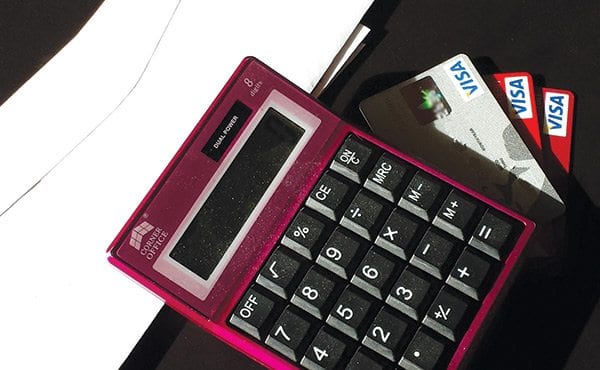
African-Americans have been pummeled by the recent financial crisis, including facing the most adverse consequences of credit card debt and higher interest rates, according to a recently released study by the NAACP and Demos, a U.S.-based research and policy center.
Findings from “The Challenge of Credit Card Debt for the African-American Middle Class” indicate that black Americans suffered disproportionate economic losses since the Great Recession, weathering the highest jobless rates, steepest declines in income and deepest cuts into their assets and investments.
Additionally burdened by systemic discriminatory policies that left blacks with fewer assets and lower rates of homeownership than whites, many African-Americans turned to credit cards as a “plastic security net” to help make ends meet, according to the report which is dated December 2013.
“Much of the disproportionate impact of credit card debt can be attributed to the fact that African Americans have fewer assets than other households to fall back on in emergencies,” explained Catherine Ruetschlin, report co-author and Demos policy analyst, in a statement. “Unlike white households, more than half of African-American wealth is held in housing, which was devastated in the financial crisis. We’re also seeing African Americans turning to credit cards to cover their household finances as incomes continue to stagnate and unemployment rates hover around twice that of white workers.”
According to the report, while blacks owe less than they did in 2008, 42 percent—consistent with other groups—reported using credit cards to pay for basic living expenses like rent, mortgage payments, groceries, utilities, or insurance.
As with other moderate-income Americans, middle-income blacks also used credit cards to invest in their future, including higher education, entrepreneurship and medical expenses.
Many of the black entrepreneurs surveyed said they used a credit card to pay for the expense of starting a new business, and 99 percent have not been able to pay it off, compared to 80 percent of whites.
Troublingly, while black credit card holders were no more likely to be late on their payments than whites, blacks were nevertheless unevenly targeted by bill collectors—71 percent of African-American middle-income households, compared to 50 percent of whites—and were more likely to have their credit cards cancelled, credit limit reduced or be denied a new card.
Black families also reported lower credit scores and different causes of poor credit. Just 66 percent of African-American households report having a credit score of 620 or above, compared to 85 percent of white households. African Americans were more likely to attribute poor credit to late student loan payments or errors on their credit report, while whites cited late mortgage payments.
“African Americans rely on credit cards to make ends meet and invest in their futures because they have faced (and continue to face) persistent structural and economic barriers that limit their ability to create wealth and build a solid credit history,” said Dedrick Asante-Muhammad, report co-author and senior director of NAACP Economic Department, in a statement.
“And when African Americans are engaging in the credit market, they are more likely victims to predatory and discriminatory lending which further increases their economic insecurity,” he said. “Unless we want to maintain the nation’s historic and contemporary racial economic divide, we must confront the reality of today’s racial inequality and advance reforms that address these disparities, fairness and security around consumer credit.”
The Credit Card Accountability Responsibility and Disclosure Act of 2009 has helped African Americans make strides toward that goal, the report concluded. Since President Obama signed the bill into law, it has helped African-American households in particular to pay down debt faster and save money by avoiding unreasonable charges.
After the act went into effect, 37 percent of indebted African-American households reported paying more toward their credit card balance in response to information in their monthly statements mandated by the CARD Act. Nearly one-third reported being charged over-the-limit fees less often since the act went into effect. One in four has been charged late fees less often, and 25 percent said they experienced a drop in the interest charged on their credit card.
New American Media






